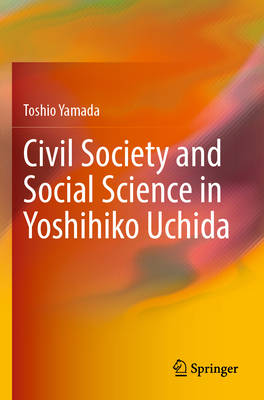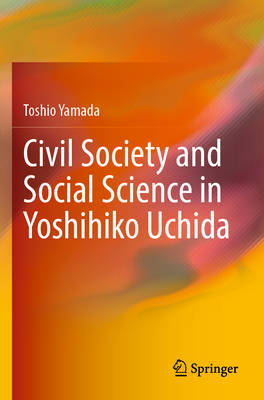
- Afhalen na 1 uur in een winkel met voorraad
- Gratis thuislevering in België vanaf € 30
- Ruim aanbod met 7 miljoen producten
- Afhalen na 1 uur in een winkel met voorraad
- Gratis thuislevering in België vanaf € 30
- Ruim aanbod met 7 miljoen producten
Omschrijving
This book introduces the work of Yoshihiko Uchida (1913-1989), one of the most prominent Japanese thinkers on the topic of civil society in the post-World War II era. The distinctive features of Uchida's approach to civil society are his view of the metabolic relationship between human beings and nature and his call for a social science rooted in the experiences and inquiries of ordinary citizens. This original approach did not develop in a straight line from Uchida's early work to his mature period, and this book follows the twists and turns in its formation through his reflections on the relationships between "the civil" and "the capitalistic," "the modern" and "the pre-modern," "the historical" and "the trans-historical," and "science by specialists" and "inquiry by laypeople." As a historian of economic thought, Uchida pursued these topical themes by examining figures such as Adam Smith, Karl Marx, and Hajime Kawakami, a prominent thinker in Japan. By casting a light on these inquiries, this book offers the first depiction of Uchida's body of work as a whole and in doing so illuminates the emergence of original democratic thought in post-war Japan.
Specificaties
Betrokkenen
- Auteur(s):
- Uitgeverij:
Inhoud
- Aantal bladzijden:
- 117
- Taal:
- Engels
Eigenschappen
- Productcode (EAN):
- 9789811911408
- Verschijningsdatum:
- 8/04/2023
- Uitvoering:
- Paperback
- Formaat:
- Trade paperback (VS)
- Afmetingen:
- 156 mm x 234 mm
- Gewicht:
- 199 g

Alleen bij Standaard Boekhandel
Beoordelingen
We publiceren alleen reviews die voldoen aan de voorwaarden voor reviews. Bekijk onze voorwaarden voor reviews.











